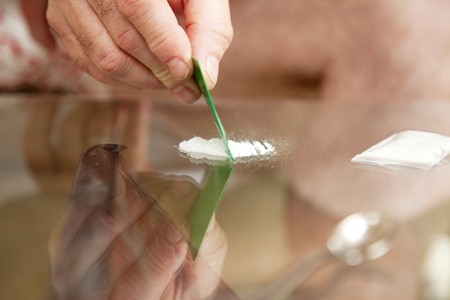New Study Suggests RTMS Can Reduce Cocaine Use and Cocaine Cravings
Repeated transcranial magnetic stimulation, or rTMS, is a non-invasive treatment in which a magnetic coil placed near the skull transmits electrical signals to the brain. It is an effective treatment for depression, and now it appears it may also be useful in the treatment of addictions.
A pilot study by Alberto Terraneo and colleagues published in European Neuropsychopharmacology in 2016 compared rTMS treatment delivered to the dorsolateral prefrontal cortex to pharmacological treatment in 32 patients who wanted to stop using cocaine. Those in the rTMS group received one session of the treatment per day for five days, followed by one session per week for three weeks. Those who received rTMS had a higher number of cocaine-free urine tests than those who had been treated with pharmacological treatments. Among those who received rTMS, 69% had a positive outcome, compared to 19% of the control group. RTMS also reduced cravings for cocaine. Both treatments improved depression.
Antonello Bonci, another author of the study who is also scientific director at the US National Institute on Drug Abuse, suggested that rTMS may work by “scrambling” the pattern of neural activity that leads to cocaine craving.
Now that there is some evidence suggesting that rTMS may be useful in the treatment of addictions, the researchers are planning a placebo-controlled study of rTMS treatment for cocaine use, in which they will give some patients a sham treatment instead of real rTMS.
Other studies are examining whether rTMS can be used to treat smoking and alcohol use disorders in addition to depression.


